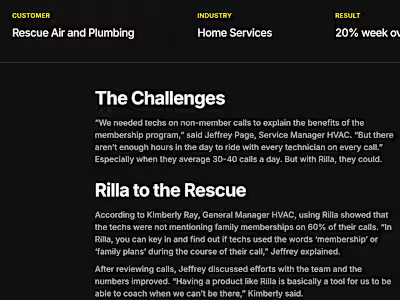Navigating College Life as an International Student: The Signif…

Stepping onto a college campus for the first time as an international student can be an overwhelming experience. The whirlwind of activities, the rush to join Greek life, the competitive process of becoming a part of pre-professional clubs, and the sight of well-established friend groups after orientation week can be bewildering. As an East African international student attending NYU, I found myself puzzled by the American obsession with formal and exclusive social networks on my college’s campus. The culture shock I encountered, which is not uncommon for international students, particularly those from underrepresented countries, prompted me to reflect on the things I wish I had known to smoothen my transition. Today, I aim to share some of these insights to assist fellow international students embarking on their own adventures.
In our weekly series, “Things I Wish I Knew as an International Student,” we delve into the experiences of international students at prestigious U.S. universities. We offer valuable advice on how to thrive in the typical U.S. college environment. This week, our focus is on the significance of building a strong network and a supportive community to facilitate your transition.
As a freshman, you are thrust onto campus and expected to adapt quickly, despite lacking the essential insights necessary for success. How do you balance a demanding course load with a vibrant social life? How can you identify which courses might adversely affect your GPA before it’s too late? And where can you find the best places to eat on campus? Forming connections with upperclassmen early in your college journey can help you smoothly navigate these challenges. Additionally, this step may introduce you to an entire network of students who share similar backgrounds and experiences.
Here are some key ways to build this network:
1. Connect with Upperclassmen Before Arrival:
Even before you set foot on campus, you can start establishing relationships with upperclassmen. Utilize platforms like LinkedIn and Instagram to reach out to them. Seek their advice and request introductions to other students from your home country. This proactive approach can help you find common ground with experienced peers.
2. Engage in Multicultural Events and Join Cultural Clubs:
College campuses are often teeming with multicultural events and diverse cultural clubs. Participation in these activities not only broadens your horizons but also helps you connect with like-minded individuals who may become your mentors and friends.
3. Seek Guidance from College Advisors:
Don’t hesitate to seek guidance from your college advisor. They can assist you in finding a mentor who aligns with your academic or personal interests. Mentors can be invaluable sources of wisdom and support during your college journey.
In conclusion, building a network as an international student is paramount to your success and well-being during your time at a U.S. university. These connections can offer guidance, support, and a sense of belonging that will help you navigate the challenges of adapting to a new culture and educational system. So, reach out, get involved, and make the most of your college experience by fostering meaningful relationships with both peers and mentors.


Each year, thousands of students find themselves stumped by college admissions essay prompts like this one. Anxiety builds because these essays carry a lot of weight, and students struggle to grasp what exactly college admissions officers want to see.

Let’s break it down into six straightforward steps to help you write a compelling admissions essay.
1. Decode the Essay Prompt:
Understanding the essay prompt matters because it sets the direction for your response. It’s like the map guiding your essay journey. Take time to break down the prompt, noting its main ideas and what the college wants to know about you. Look for clues about your values, experiences, or goals that the college is interested in. This step helps you craft an essay that directly addresses what the college is seeking in its applicants.
2. Study Successful Essays:
Reading a wide range of college essay styles is vital. It ignites inspiration and provides a blueprint for structuring your essays effectively. By exploring various approaches, you’ll learn what engages readers and how to create a gripping story. Analyzing these examples helps identify successful tactics, empowering you to infuse both creativity and structure into your writing.
College websites like Harvard, Johns Hopkins and Connecticut College share free examples of successful college essays and why they worked. Check them out!
3. Shift Your Mindset:
Rather than fixating on crafting the most philosophically profound essay, concentrate on writing practical, and authentic stories that genuinely engage you and are easy to express. Keep in mind that the execution is more impactful than devising a complex essay theme. To do this, spend your first few days brainstorming ideas and choose between the two topics that excite you the most.
4. Don’t Overthink Your First Draft:
Put pen to paper (or fingers to keyboard). Write it, let the essay rest for at least 24 hours, and then revisit the essay along with the prompt. Simply getting started alleviates the pressure of writing a flawless essay, which often leads to writer’s block. Instead, it facilitates the natural flow of your ideas and builds momentum. Keep in mind that even the most accomplished writers employ an iterative method, using a multiple draft strategy. The initial drafts are meant to generate ideas, so reserve your rigorous critiques for the third and fourth drafts.
5. Establish a support system:
Find someone in your circle—be it an English teacher, college counselor, parent, or an admired current college student—who can aid you in meeting deadlines and providing feedback on your drafts when needed. Leveraging your support network proves highly beneficial, helping ease the stress that often comes with navigating this process solo.
6. Connect your essay to the future:
Admissions officers are primarily interested in determining who will seamlessly integrate into their campus community and make a meaningful contribution. A compelling approach is to highlight your personal growth and articulate how it will manifest in your role as a student on their campus.
Happy Writing!
Like this project
Posted Sep 9, 2024
This article highlights how networking helps international students successfully navigate and thrive in college, with practical tips for a smooth transition.
Likes
0
Views
7






